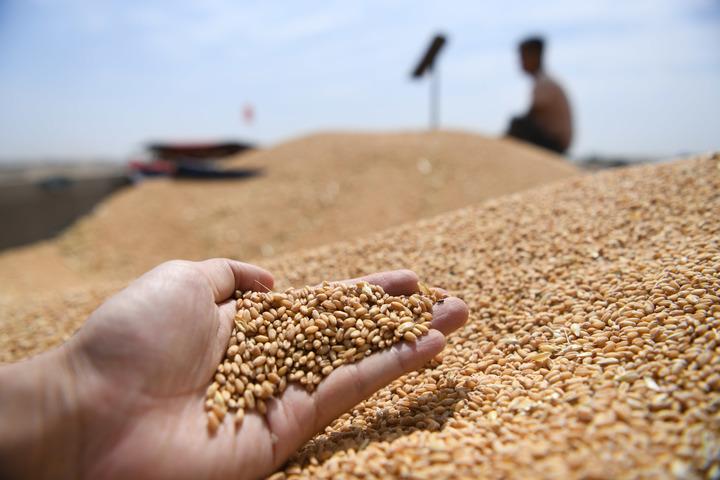BEIJING, Sept. 13 (Xinhua) -- More than 900 experts from 67 countries came together at the 2nd International Wheat Congress (IWC) in Beijing on Monday to exchange ideas on how to improve the development of the wheat industry worldwide, calling for global cooperation on wheat science and technology innovation to ensure global food security.
Jointly hosted by the Chinese Academy of Agricultural Sciences (CAAS) and the Consultative Group on International Agricultural Research, the conference is focused on key issues of wheat research, such as increasing wheat yields, reducing environmental risks, new breeding technologies, optimized production systems, and improving the nutritional quality of wheat.
Themed "Future Wheat: Resilience and Sustainability," the conference was launched Monday night, adopting a hybrid form of on-site and virtual lectures, as well as online broadcasts.
Experts agreed on the great importance of promoting the high-quality development of the wheat industry, especially bearing in mind the challenging international situation.
According to Wu Weihua, vice chairman of the National People's Congress Standing Committee and an academician of the Chinese Academy of Sciences (CAS), food security is an important guarantee for world peace and development. However, the global economic recession caused by the COVID-19 pandemic, regional conflicts and extreme weather have posed serious challenges to global food security.
As one of the world's most populous countries, China has taken effective measures to ensure global food security, he added.
"We must transform our agri-food systems to be more efficient, more inclusive, more resilient and more sustainable," said Qu Dongyu, Director-General of the Food and Agriculture Organization (FAO) of the United Nations, via video link at the opening ceremony.
"I look forward to the outcomes of this congress, which will provide suggestions on the future of wheat, with a focus on resilience and sustainability," he added.
The FAO's forecast for global cereal production in 2022 is 0.6 percent short of the global output in 2021, and the forecast for global wheat production has been 1 percent lower year on year, Qu added.
In his speech, Wu Kongming, president of CAAS, revealed that in collaboration with international partners, CAAS aims to launch a global initiative to jointly establish a sharing mechanism of crop germplasm resources, including wheat, so as to realize a new green revolution in the elucidation and application of genetic resources to contribute to global food security and human nutrition.
According to Curtis Pozniak, chairman of the International Organizing Committee of IWC, the focus of this year's conference is to explore strategies for the effective use of wheat-related genetic resources through global collaboration, in order to improve wheat productivity and address challenges such as climate change.
Wheat is an important staple commodity for over 35 percent of the world's population, with global production reaching over 760 million tons in 2020, according to Qu, citing the FAO report.
As a biennial event, the conference, scheduled to conclude on Thursday, has provided a platform for participants to share the latest progress and to develop recommendations for future wheat in terms of research, technology and transfer.




 A single purchase
A single purchase









